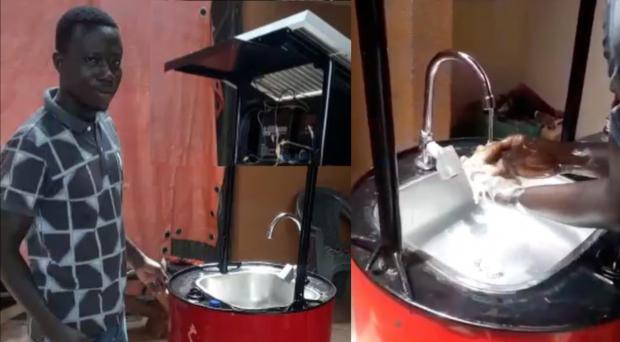
Breaking News
 Protecting Sex Predators: The Sordid Reality of the Global Power Elite
Protecting Sex Predators: The Sordid Reality of the Global Power Elite
 Palantir, Colorado's most valuable publicly traded company, suddenly departed for Florida today
Palantir, Colorado's most valuable publicly traded company, suddenly departed for Florida today
 Republican Rep. Joins Dems to BLOCK Trump's Pardon Power
Republican Rep. Joins Dems to BLOCK Trump's Pardon Power
 The Global Wealth Rotation Just Started
The Global Wealth Rotation Just Started
Top Tech News
 New Spray-on Powder Instantly Seals Life-Threatening Wounds in Battle or During Disasters
New Spray-on Powder Instantly Seals Life-Threatening Wounds in Battle or During Disasters
 AI-enhanced stethoscope excels at listening to our hearts
AI-enhanced stethoscope excels at listening to our hearts
 Flame-treated sunscreen keeps the zinc but cuts the smeary white look
Flame-treated sunscreen keeps the zinc but cuts the smeary white look
 Display hub adds three more screens powered through single USB port
Display hub adds three more screens powered through single USB port
 We Finally Know How Fast The Tesla Semi Will Charge: Very, Very Fast
We Finally Know How Fast The Tesla Semi Will Charge: Very, Very Fast
 Drone-launching underwater drone hitches a ride on ship and sub hulls
Drone-launching underwater drone hitches a ride on ship and sub hulls
 Humanoid Robots Get "Brains" As Dual-Use Fears Mount
Humanoid Robots Get "Brains" As Dual-Use Fears Mount
 SpaceX Authorized to Increase High Speed Internet Download Speeds 5X Through 2026
SpaceX Authorized to Increase High Speed Internet Download Speeds 5X Through 2026
 Space AI is the Key to the Technological Singularity
Space AI is the Key to the Technological Singularity
 Velocitor X-1 eVTOL could be beating the traffic in just a year
Velocitor X-1 eVTOL could be beating the traffic in just a year
During Lockdown a Ghanaian Shoemaker Invented a Solar-Powered Hand-washing...

Ghana, a country the size of Utah but with 31 million inhabitants, is benefitting from good old-fashion ingenuity in its fight against COVID-19.
In Kumasi, the cultural capital of the country located in the Ashanti region, a 2-week lockdown to control the spread inspired a man to a wonderful invention.
In less than 48 hours, 32-year old shoemaker Richard Kwarteng and his brother Jude Osei managed to gather all the necessary supplies to turn an old recycled metal barrel into a solar-powered hand-washing basin to encourage sanitation habits among the neighborhood.
Set to run on a 25-second timer, in correspondence with the CDC guidelines for handwashing duration, it would need not only elements of plumbing, but also electrical engineering like sensors, alarms, and a motherboard, yet be able to work like a normal hands-free sink.
Fortunately the street markets of Ghanaian cities carry every component under the sun, and with the help of a friend who worked as an electrician and was able to handle the computer element, Kwarteng finished his invention in just five days.
Osei recorded a video of Kwarteng demonstrating how to use the device and posted it on social media. It immediately went viral. "It was amazing to see the shares and likes," Kwarteng told CNN. "We started getting calls left and right. We were so proud of ourselves," he added.



